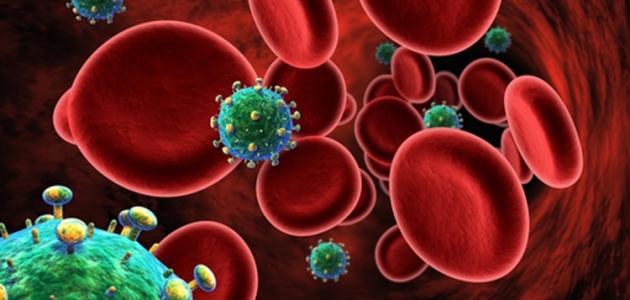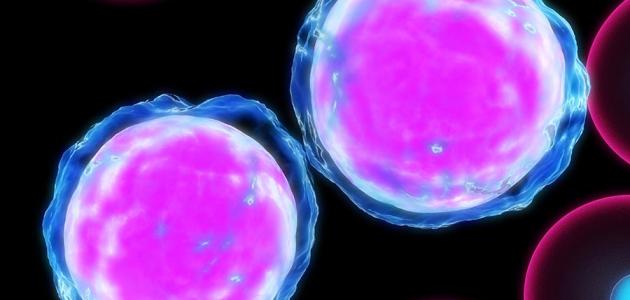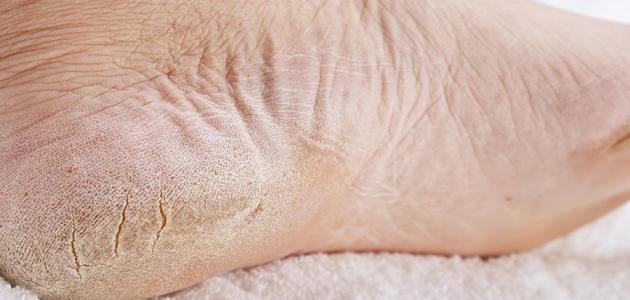Contents
The red wolf
SLE, or lupus erythematosus, or lupus is known as a long-term autoimmune disease that causes chronic inflammation that may affect many body systems, the most important of which are; Joints, skin, kidneys, blood cells, brain, heart, and lungs. In fact, lupus results from an abnormal increase in the activity of the immune system in the body, which leads to attacking the normal and healthy tissues in it, [1] [2]It is worth noting that the cases of lupus are not completely alike. As the symptoms and signs appearing in lupus patients usually differ, symptoms may appear suddenly sometimes and may develop slowly at other times, and the severity may vary from slight to severe, and may remain for temporary periods sometimes while they remain permanent at other times, but in fact he suffers Most individuals with lupus in general suffer from a simple disease characterized by the presence of flares , which are certain periods during which the symptoms worsen clearly and then improve or disappear completely for some time. [3] It is expected that most SLE patients will have a normal life, especially When following your doctor's instructions and treatment plan directions. [4]
SLE and the excretory system
The kidneys are the main organs of the urinary system. Its function is to maintain the appropriate quantities and the correct types of fluids necessary for the body, remove waste and toxic substances out of the body, and regulate hormones that help control blood volume and blood pressure, and in addition to the kidneys, the urinary system consists of the ureters, the bladder, and the urethra. [5]
Lupus nephritis
Is nephritis lupus one complication familiar and frequent in patients with systemic lupus erythematosus known as lupus, [6] In fact , there is a systematic review of a number of studies published in the Arch Rheumatol magazine in 2017 indicated Indicates that 29% of patients with systemic lupus erythematosus develop a problem with lupus nephritis, and female infections constitute 85% of all lupus nephritis cases, while lupus nephritis constitutes 60% of all secondary renal glomerular diseases in the databases of renal biopsies. The review also indicated that the incidence of lupus nephritis among the ranks of patients with systemic lupus erythematosus in the Kingdom of Saudi Arabia was higher than the rates recorded in Europe and the United States of America together.[7] It is worth noting that lupus autoantibodies affect the internal kidney structure responsible for filtering waste products, leading to nephritis, which includes the emergence of a group of symptoms, the most important of which are; Blood in the urine, foamy urine due to excess protein in it, high blood pressure, suffering from swelling of the hands, ankles, or feet, and a high level of creatinine in the blood; It is one of the body waste. [6]
It should be noted that there are five types of lupus nephritis, and the type is usually determined by taking a biopsy of the kidney, and cases of lupus nephritis differ in nature between individuals in terms of symptoms and severity, and accordingly the recommended treatments for patients vary according to the type. And its specific circumstances, and among the treatment options used in the treatment of lupus nephritis are the following: [8]
- Corticosteroids ; They are considered strong anti-inflammatory drugs that can be used until the inflammatory state improves in the kidney, and then the dose is gradually reduced after the symptoms begin to improve, because these drugs may cause many dangerous side effects.
- Immunosuppressive drugs; Such as cyclophosphamide , and mycophenolate , which suppress the activity of the immune system that negatively affects the kidneys.
- Anti-clotting and antihypertensive drugs that may be used as needed.
- Dialysis; In spite of the use of the above-mentioned treatments, the problem may worsen and the kidney will lose its full ability to perform the functions assigned to it sometimes, and if both kidneys are affected by kidney failure, the patient may then need dialysis, which is the medical method used to filter the blood and remove body waste from it using a machine that simulates College work.
- Kidney transplant; Ultimately , a kidney transplant may be required , and this requires additional immunosuppressive drugs to avoid rejection of the transplanted kidney.
Urinary tract infection
Urinary tract infections, or as it is sometimes called, a bladder infection is one of the complications associated with diseases of the connective tissue located in the kidneys, as this infection usually affects the lower part of the urinary tract, and specifically affects the bladder and urethra in addition to the prostate In men, it is worth noting that lupus does not cause urinary tract infection directly, but rather makes the patient more susceptible to infection of the urinary tract, [9] and in a report published in the British Medical Journal in 2004 indicates that the rate of The prevalence of urinary tract infection among people with lupus erythematosus reached 36%, [10] As for the symptoms of UTIs, they may include the following: [9]
- Feeling the constant need to urinate.
- Urinate frequently.
- Feeling of burning during urination.
- Sensation of pressure in the pelvic area.
- Lower back pain .
- Pain during urination.
- The appearance of blood in the urine, and the urine may have a strong or foul odor.
- Difference in the nature of urine; It may be dark in color and cloudy in appearance.
As for the treatment options, the doctor usually prescribes the appropriate antibiotics for cases of simple UTIs that did not lead to any complications, and in fact it may be difficult to treat UTIs in many cases, due to the use of special medicines to control the symptoms of lupus that make the patient More susceptible to bacterial infection, and it must be noted that bacteria may continue their course by moving to the upper parts of the urinary tract in some cases; It reaches the bladder and then extends to one or both of the kidneys. In fact, failure to obtain appropriate treatment for a urinary tract infection may expose the patient to more symptoms, including; Fatigue, fever, chills, and nauseaAnd vomiting, and a feeling of pain in the upper back, and these symptoms indicate that the infection has reached the kidneys. Therefore, it is necessary to contact a doctor as soon as any symptoms of a bacterial infection appear to avoid complications, and it is also necessary to be aware that carelessness and untreatment of a UTI leads to a recurring urinary tract infection, a chronic kidney infection, or a serious, life-threatening condition known as sepsis or Blood poisoning, and it is worth noting that severe cases of urinary tract infection require hospitalization and access to antibiotics in high doses through the vein, as for appropriate preventive treatments to prevent recurrence of infection, it is represented by the use of antibiotics at low doses on a daily basis for relatively long periods. [9]
Lupus cystitis
The inflammation of the bladder lupus a rare complication of the disease , systemic lupus, and in general inflammation of the bladder patients suffering from lupus symptoms of gastrointestinal; Any symptoms in the digestive system, such as; Vomiting, nausea, and abdominal pain, and sometimes these symptoms are similar to the symptoms of intestinal obstruction, and in fact a patient with lupus cystitis may suffer from symptoms in the lower urinary tract such as; Dysuria, suprapubic pain, frequent urination, frequent need to urinate, urinary incontinence , and it should be noted that increased bladder wall thickness, decrease in bladder volume, and kidney ascites have been observed in lupus cystitis patients. [11]
Side effects of lupus medications
The use of therapeutic medicines for lupus may result in the emergence of some symptoms and signs of kidney disease, which are similar to the symptoms of lupus nephritis, and they can be explained as follows: [5]
- Infection with different types of infections: In fact, lupus itself does not usually cause kidney infection, while the drugs used to treat lupus and lupus nephritis can reduce the body’s immunity in general, which may lead to an increased possibility of infection with various infections, including kidney inflammation.
- Fluid retention in the body and the stopping of the kidneys' functioning: The use of drugs belonging to the group of non-steroidal anti-inflammatory drugs , such as aspirin, may cause fluid retention in the body and the work of the kidneys sometimes.
- Interstitial nephritis: The use of anti-inflammatories or antibiotics may result in an infection in the connective tissue within the renal glomerulus called interstitial nephritis.
References
- ↑ Yvette Brazier (8-1-2020), "What is lupus?" , Www.medicalnewstoday.com The , Retrieved 9-8-2020. Edited.
- ↑ "Lupus" , www.nchmd.org , 18-06-2016 , Retrieved 9-8-2020 Edited.
- ↑ Drugs.com staff (15-10-2019), "Lupus" , www.drugs.com , Retrieved 9-8-2020. Edited.
- ↑ Gabriela Pichardo (24-5-2020), "What is the outlook for people with lupus?" , The www.webmd.com , Retrieved 9-8-2020. Edited.
- ^ A b "How To Lupus Affects The Renal (renal) System" , Www.lupus.org , 12-7-2013, Retrieved 9-8-2020. Edited.
- ^ A b Mayo , Clinic Staff (15-8-2019), "Lupus Nephritis" , Www.mayoclinic.org , Retrieved 9-8-2020. Edited.
- ↑ Hong WANG, Yi-le REN, Jun CHANG and others (25-7-2017), “A Systematic Review and Meta-analysis of Prevalence of Biopsy-Proven Lupus Nephritis” , www.ncbi.nlm.nih.gov , Retrieved 9-8-2020. Edited.
- ↑ David Zelman (12-8-2019), "Lupus Nephritis" , www.webmd.com , Retrieved 9-8-2020. Edited.
- ^ A b v Knoxweb (4-5-2018), "Lupus And The Frequent Occurrence Of Bladder Infections" , Www.urologypc.net , Retrieved 9-8-2020. Edited.
- ↑ C Hidalgo-Tenorio, J Jiménez-Alonso, J de Dios Luna and others (12-3-2004), "Urinary tract infections and lupus erythematosus" , www.ard.bmj.com , Retrieved 9-8-2020. Edited.
- ↑ Aziza Bawazier L. (18-9-2018), "Asymptomatic Lupus Cystitis with Bilateral Hydronephrosis" , www.karger.com , Retrieved 9-8-2020. Edited.
















